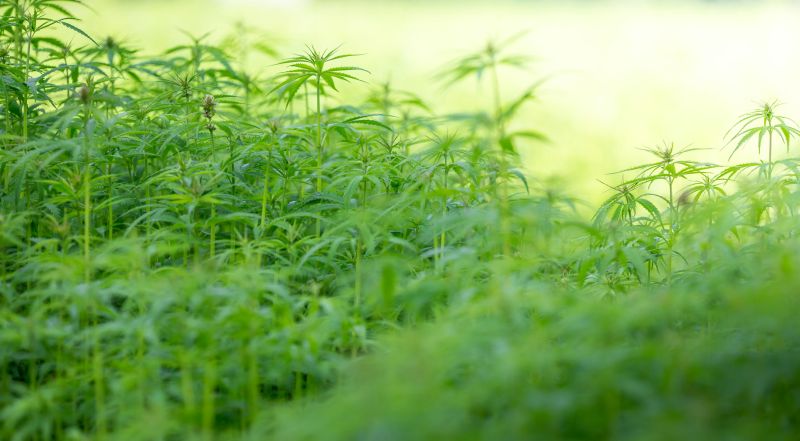
The government has made changes to industrial hemp licensing to support regulated farmers to grow the crop and encourage investment in the industry.
Growers will be able to grow hemp anywhere on a licensed farm and the maximum period for a licence will be extended from three to six years, subject to compliance with the terms of the licence.
Hemp is a variety of cannabis containing less than 0.2% THC. It has a number of lawful purposes, for example in construction and textiles.
To make sure this is only grown for strictly legal purposes, farmers who wish to grow hemp must have a licence.
The new proposals, which have been developed in collaboration with growers, include an option to apply for a licence with a deferred start date by up to one year.
These changes are planned to come into effect for the 2025 growing season.
Official figures show that the number of hemp licences has grown from six in 2013 to 136 in 2023.
Farming Minister Mark Spencer said: “Industrial hemp has huge potential across the UK to unlock new revenue streams, expand our bioeconomy without permanently removing land from food production, and bring wider environmental benefits.
“The licensing changes recognise industrial hemp as a field-grown agricultural crop and will enable more farmers to add hemp to their crop rotations."
Hemp can only be cultivated outdoors under the Home Office’s “industrial hemp” licensing regime for the purposes of fibre and seed production.
Growers who wish to use the controlled parts of the plant for lawful purposes, including the production of pharmaceuticals such as cannabis-based products for medicinal use, can do so under a standard cannabis cultivation licence.
A first-time licence costs £580, with them issued for three growing seasons. Repeat growers currently pay £326 for a licence, less than £109 per year.
